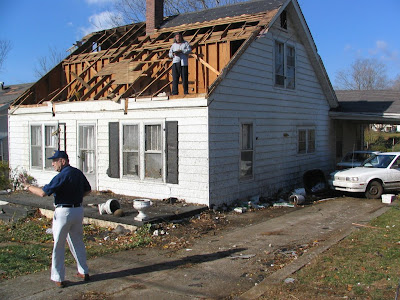 Have you got the right insurance to cover your holiday home? If you’re lucky enough to own a holiday home in the UK, one downside is that you now have two properties to worry about. One way to lessen the stress is with home insurance.
Have you got the right insurance to cover your holiday home? If you’re lucky enough to own a holiday home in the UK, one downside is that you now have two properties to worry about. One way to lessen the stress is with home insurance.Buildings insurance for a holiday home
Your holiday home insurance should cover exactly the same as your regular home insurance - the structure of your property, fixtures and fittings. Make sure your insurance policy is comprehensive and covers the full cost of the repair and rebuild of your holiday home, should the need arise.
Also check that you’re covered for subsidence and flooding if your property lies within a risk area, and read the small print to find out what your home insurance policy doesn’t cover.
Contents insurance for a holiday home
A good contents insurance policy will cover your furniture, carpets, clothes, ornaments, paintings and electrical goods. However, you may want to get additional insurance cover for extra piece of mind.
Examples of additional home cover include:
- Extended Accidental Damage
- Sports equipment or bicycle cover
- New for Old - claims paid on a new-for-old basis
- Family Legal Protection
- Guests’ Possessions Cover
- Garden equipment cover (can also include toys)
- Items in outbuildings/garage cover
- Locks and keys (to cover lost/stolen keys or damaged locks)
- Emergency Assistance – cover for temporary repairs due to a domestic emergency
- Cash/Credit Card – provides cover for theft
Important: There is one clause often found in home insurance policies that is of particularly relevance to a holiday home, and it has to do with the length of time the property is left empty.
Some insurance policies have restrictions on what they cover if a property is left vacant for a significant length of time, typically 30 days or more. This is obviously an extremely important point to consider with a holiday home, which may be left empty for lengthy spells.
A vacant home can be an invitation to burglars, so keep one step ahead of thieves by making arrangements to ensure the home is never left empty for any 30-consecutive-day period.
Top tip: You could get a reduction on your home insurance policy and your holiday home policy by beefing up security measures with the addition of secure mortis locks, intruder alarms and by joining neighbourhood watch schemes.
Sourced from http://www.confused.com/guides/household/home-insurance/confused-com-s-guide-to-holiday-home-insurance-3923288462








